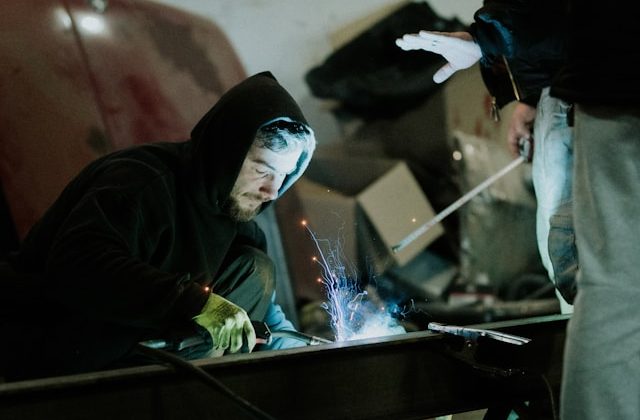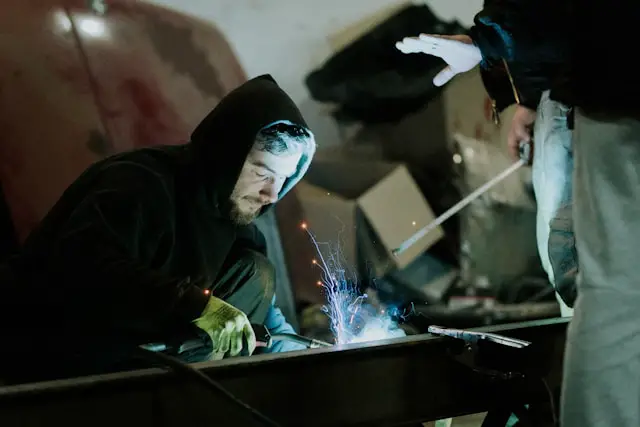
Welding has become a popular activity for many homeowners, enthusiasts, and DIYers. With the rise of accessible tools and tutorials, more people are considering setting up their welding stations in their garages. However, before you dive into this exciting hobby, it’s essential to understand the legal implications associated with welding in your garage.
What is welding?
Welding is a fabrication process that joins materials, typically metals or thermoplastics, by causing fusion. This process involves melting the workpieces and adding a filler material to form a weld pool, which cools to become a strong joint.
The rise in DIY welding
In recent years, there has been a surge in do-it-yourself (DIY) welding projects. Many enthusiasts are attracted to the idea of creating custom metalwork or repairing items themselves, leading them to set up welding stations in their garages.
Legal Considerations
Local regulations
Before you start welding in your garage, it’s crucial to research and understand the local regulations governing such activities. Local municipalities may have specific ordinances regarding welding in residential areas.
Building codes and permits
In addition to local regulations, you may need to comply with building codes and obtain permits for certain welding activities. These codes and permits ensure that your garage setup meets safety standards and does not pose a risk to your property or neighbors.
Zoning laws
Zoning laws dictate how properties can be used and what activities are permitted in certain areas. Some zoning regulations may restrict or prohibit welding in residential zones due to safety concerns or environmental considerations.
Safety Concerns
Fire hazards
Welding generates high temperatures and sparks, posing a significant fire hazard, especially in enclosed spaces like garages. It’s essential to have proper fire suppression measures in place, such as fire extinguishers and fire-resistant materials.
Ventilation requirements
Proper ventilation is critical when welding indoors to remove harmful fumes and gases produced during the welding process. Inadequate ventilation can lead to respiratory issues and pose health risks to individuals in the vicinity.
Protective gear
Welding involves exposure to intense heat, UV radiation, and flying debris. Therefore, wearing appropriate personal protective equipment (PPE), such as welding helmets, gloves, and aprons, is essential to prevent injuries.

Environmental Impact
Fumes and emissions
Welding produces various fumes and emissions, including airborne particles and gases, which can be harmful to both human health and the environment. Proper ventilation and filtration systems are necessary to mitigate the impact of these emissions.
Hazardous waste disposal
The materials used in welding, such as welding rods and gases, may generate hazardous waste that requires proper disposal. Improper disposal of welding waste can lead to environmental contamination and regulatory penalties.
Insurance and Liability
Homeowner’s insurance policies
Welding activities conducted in your garage may affect your homeowner’s insurance coverage. It’s essential to review your policy and notify your insurance provider of any changes to ensure adequate coverage for potential liabilities.
Liability risks
Welding carries inherent risks, including property damage and personal injury. If an accident occurs while welding in your garage, you could be held liable for damages. Understanding your liability risks and taking appropriate precautions is essential to protect yourself and others.
Alternatives and Solutions
Renting professional welding services
If you’re hesitant about welding in your garage or concerned about legal and safety issues, consider hiring professional welding services for your projects. Professional welders have the expertise and equipment to handle welding tasks safely and efficiently.
Utilizing community workshops
Many communities offer shared workshop spaces equipped with welding equipment and tools. These community workshops provide a safe and legal environment for individuals to pursue their welding projects without the need for specialized equipment at home.
Investing in portable welding setups
For those committed to welding as a hobby or profession, investing in a portable welding setup may be a viable solution. Portable welders allow you to work outdoors or in well-ventilated areas, reducing the risks associated with welding indoors.
Conclusion
While welding in your garage can be a rewarding and fulfilling activity, it’s essential to consider the legal, safety, and environmental implications. By understanding and adhering to local regulations, prioritizing safety measures, and exploring alternative solutions, you can enjoy welding projects while minimizing risks and liabilities.
FAQs
- Is welding in a residential garage legal?
- The legality of welding in a residential garage depends on local regulations, building codes, and zoning laws. It’s essential to research and comply with these regulations to avoid potential legal issues.
- What safety precautions should I take when welding in my garage?
- When welding in your garage, ensure proper ventilation, wear appropriate personal protective equipment (PPE), and have fire suppression measures in place to mitigate risks.
- Does welding in my garage affect my homeowner’s insurance?
- Welding activities conducted in your garage may impact your homeowner’s insurance coverage. It’s advisable to review your policy and inform your insurance provider to ensure adequate protection.
- Are there alternatives to welding in my garage?
- Yes, alternatives include renting professional welding services, utilizing community workshops, or investing in portable welding setups for outdoor use.
- What should I do with welding waste generated in my garage?
- Welding waste, such as used welding rods and gases, should be disposed of properly to prevent environmental contamination. Contact your local authorities or waste management services for guidance on hazardous waste disposal.

Leave a Reply